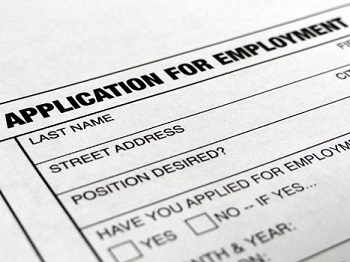By Elizabeth Tansing, Director, State Government Relations, Food Marketing Institute

Should a box appear on a job application, requesting the solicitant to check whether or not they have a criminal history? Over 100 cities and counties and 19 states have adopted what are known as “ban the box” laws. These initiatives typically seek to remove the question (or “box”) on the job application about an individual’s conviction history (i.e., “ban the box”), and to delay the background check inquiry until later in the hiring process; generally, after the first interview, or following a conditional offer of employment. Currently, many of these laws apply only to public employers, but seven states (HI, IL, MA, MN, NJ, OR, and RI), and numerous cities, have extended the requirement to private employers.
Advocates of the policy claim that “ban the box” laws provide a fair chance for all job-seekers by forcing employers to consider a candidate’s qualifications absent any stigma of a criminal record. Employers, however, may find themselves going much deeper in the hiring process with a particular candidate before learning about their criminal past, which may have disqualified them initially. Not only are employers concerned about time being potentially wasted, but also about the risk of discrimination lawsuits.
Another concern employers have is that failure to perform a criminal background check could expose customers and employees to potential crime, and leave employers vulnerable to the subsequent liability for any criminal acts committed by employees on the job.
A recent Texas court case illustrates this particular conundrum for employers. In Najera v. Recana, an employee who was assaulted on the job, sued the staffing agency who hired his assaulter for, among other things, negligence in failing to perform a criminal background check. In this instance, a criminal background check would have disclosed misdemeanor convictions for possession, DWI and assault.
The state Court of Appeals this past August agreed with a trial court’s decision to dismiss the case. It concluded that the staffing agency did not have a “general duty to perform a criminal background check.” In reaching its decision, the court noted the “significant administrative burden and costs” that would be imposed if criminal background checks were required for every unskilled laborer a staffing agency places.
But even though the court found no general duty to perform background screening here, it acknowledged that certain specific circumstances could give rise to one, if the risk of potential harm was foreseeable. For example, hiring a security guard who would carry a firearm on the job would likely entail a duty to check any potential employee’s criminal record, with the weapon in this example creating a foreseeable risk of harm.
This is the box into which “ban the box” laws place employers. Restricted from conducting background checks by law, yet potentially open to negligence liability if they do not. There are some murky legal waters to navigate here, and with “ban the box” laws rapidly spreading across the country, these waters will only grow murkier.


 Industry Topics address your specific area of expertise with resources, reports, events and more.
Industry Topics address your specific area of expertise with resources, reports, events and more.
 Our Research covers consumer behavior and retail operation benchmarks so you can make informed business decisions.
Our Research covers consumer behavior and retail operation benchmarks so you can make informed business decisions.
 Events and Education including online and in-person help you advance your food retail career.
Events and Education including online and in-person help you advance your food retail career.
 Food Safety training, resources and guidance that help you create a company food safety culture.
Food Safety training, resources and guidance that help you create a company food safety culture.
 Government Affairs work — federal and state — on the latest food industry policy, regulatory and legislative issues.
Government Affairs work — federal and state — on the latest food industry policy, regulatory and legislative issues.
 Get Involved. From industry awards to newsletters and committees, these resources help you take advantage of your membership.
Get Involved. From industry awards to newsletters and committees, these resources help you take advantage of your membership.
 Best practices, guidance documents, infographics, signage and more for the food industry on the COVID-19 pandemic.
Best practices, guidance documents, infographics, signage and more for the food industry on the COVID-19 pandemic.
